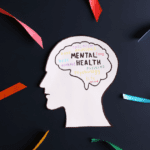
Top 7 Sober Activities in Kokomo, Indiana
April 3, 2023
Understanding Mental Health Treatment Plans: A Guide for Individuals and Families
August 31, 2023In a world full of noise, it’s easy to overlook the silent epidemic that is gripping our society: mental health. Behind closed doors and masked smiles, countless individuals are silently battling their own minds, desperate for understanding and support. It’s time to shed light on this urgent matter and delve into the importance of mental health treatment. Join us as we embark on a journey to uncover the truth behind this invisible struggle and explore why addressing it has never been more crucial than now. At First City Mental Health Center in Kokomo, Indiana, we can break the silence together and pave the way towards brighter tomorrows filled with compassion, empathy, and comprehensive mental health care.
Overview of Mental Health
Mental health is often viewed as a taboo topic, which can make it difficult to seek help when struggling. This is especially true for men, who are often socialized to believe that they should be strong and stoic. However, mental health is an important part of overall health and well-being, and it’s nothing to be ashamed of if you or a loved one is struggling.
One in five adult Americans experiences mental illness in a given year, according to the National Alliance on Mental Illness. That means that 20% of the US population is dealing with conditions like depression, anxiety, bipolar disorder, schizophrenia, eating disorders, and more.
Despite its prevalence, mental illness is often left untreated. In fact, only 41% of adults in the US who need mental health care actually receive it, according to the Substance Abuse and Mental Health Services Administration. This lack of treatment can have serious consequences. Untreated mental illness can lead to substance abuse, relationship problems, financial difficulties, job loss, homelessness, and even suicide.
Mental Health Statistics
Mental health disorders are common in the United States, affecting tens of millions of Americans each year. One in five adults will experience a mental health disorder in any given year, and one in 25 will experience a serious mental illness.
Mental health disorders are not evenly distributed across the population. Some groups are more likely to experience mental health problems than others. Women, for example, are more likely than men to experience depression, anxiety, and eating disorders. African Americans are more likely than other groups to experience post-traumatic stress disorder (PTSD), major depressive disorder (MDD), and schizophrenia.
Certain risk factors can make someone more likely to develop a mental health disorder. These include exposure to trauma, poverty, violence, and substance abuse. Mental health disorders can also be passed down from generation to generation.
Mental health disorders can have a profound effect on every aspect of a person’s life. They can interfere with work, school, and personal relationships. They can lead to chronic physical problems and increase the risk of death by suicide.
The good news is that mental health disorders are treatable. With proper diagnosis and treatment, most people with mental illness can live full and productive lives.
The Impact of Mental Illness
Mental illness is a term that is used to describe a wide range of mental health conditions. Mental illness can affect anyone, at any age and from any walk of life. In the United States, one in five adults will experience a mental illness in any given year.
Mental illnesses can have a profound and lasting impact on those who suffer from them. They can cause significant distress and interfere with an individual’s ability to function in their everyday lives. Mental illnesses can also lead to physical health problems. For example, people with depression are more likely to develop heart disease or diabetes.
While each person’s experience with mental illness is unique, there are some common themes. People with mental illness often feel isolated and alone. They may feel like they are not understood by family and friends. They may also feel like they are not able to cope with their symptoms or get the help they need.
If you or someone you know is struggling with mental illness, it is important to seek help. There are many effective treatments available for mental illness, and recovery is possible.
Benefits of Treatment for Mental Illness
There are many reasons why people don’t seek out treatment for mental illness. Some people may not be aware that they’re experiencing symptoms of a mental health condition. Others may believe that treatment won’t help, or they may be worried about the stigma attached to mental illness.
However, there are many good reasons to seek treatment for mental illness. Mental health conditions can be effectively managed with medication and counseling. Treatment can help reduce symptoms, improve functioning, and prevent serious complications such as suicide.
People who receive treatment for mental illness often see a significant improvement in their quality of life. They’re able to work and participate in activities they enjoy again. Treatment can also help people develop healthier relationships and build supportive social networks.
Common Types of Mental Health Treatment
Mental health treatment comes in many different forms, but there are some common types of treatment that are used to help people manage their mental health. These include counseling, medication, and therapy.
Counseling is a type of mental health treatment that involves talking with a trained counselor about your thoughts, feelings, and experiences. Counseling can help you learn more about yourself and how to cope with stress and difficult situations.
Medication is another type of mental health treatment that can be used to manage symptoms of mental illness. Medication can be prescribed by a doctor or psychiatrist and can help to stabilize moods, relieve anxiety, and improve sleep.
Therapy is another type of mental health treatment that involves talking with a therapist about your thoughts, feelings, and experiences. Therapy can help you learn more about yourself and how to cope with stress and difficult situations.
Challenges Facing Access to Mental Health Treatment
There are many challenges that prevent people from getting the mental health treatment they need. The most common barriers are lack of insurance, cost, transportation, and stigma.
Lack of insurance is a major barrier to mental health treatment. In the United States, nearly 60 million adults have no health insurance at all. This includes people with mental illness who may not be able to afford private insurance or who may not qualify for public programs like Medicaid.
Cost is another barrier to mental health treatment. Even if you have insurance, copayments and deductibles can make therapy sessions unaffordable. In addition, many mental health providers don’t accept insurance, which means you may have to pay out of pocket. Fortunately, our center accepts most private insurance and will work with you on a financial plan.
Transportation can also be a barrier to mental health treatment. If you live in a rural area or don’t have access to reliable transportation, it can be difficult to get to your appointments. This is especially true if you’re seeing a therapist who isn’t in your network of providers.
Stigma is a major barrier to mental health treatment. People with mental illness often feel like they’re not worthy of help or that they should be able to just “snap out of it.” This stigma prevents many people from seeking the help they need.
In summation, mental health is an important and often overlooked issue that needs to be addressed. Despite the fact that it affects so many people, there continues to be a stigma surrounding mental illness that prevents those who are struggling from getting the help they need. It’s time for us to break down this barrier and come together in support of one another by talking about our own struggles with mental health and encouraging others to get help when needed. Let’s work towards creating an understanding environment where everyone feels safe enough to open up about their issues without fear of judgement or discrimination.
If you or a loved one is in need of mental health treatment, call us today. 877-679-2964






